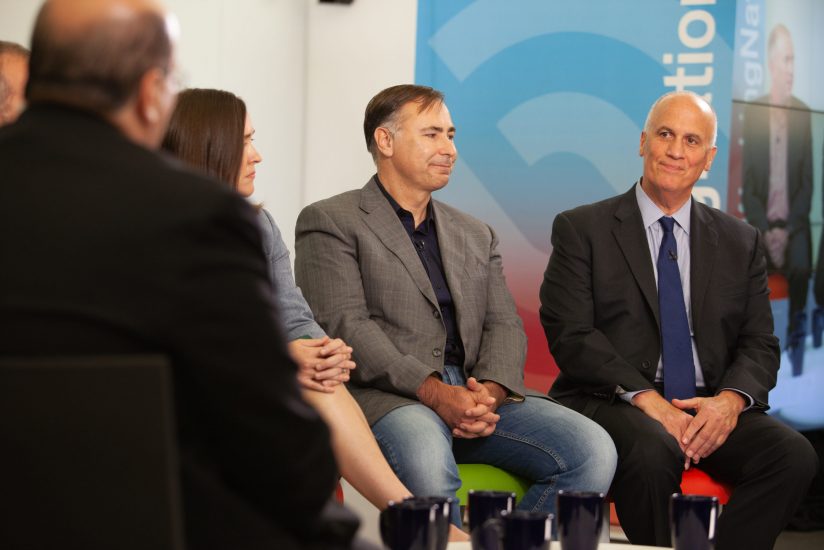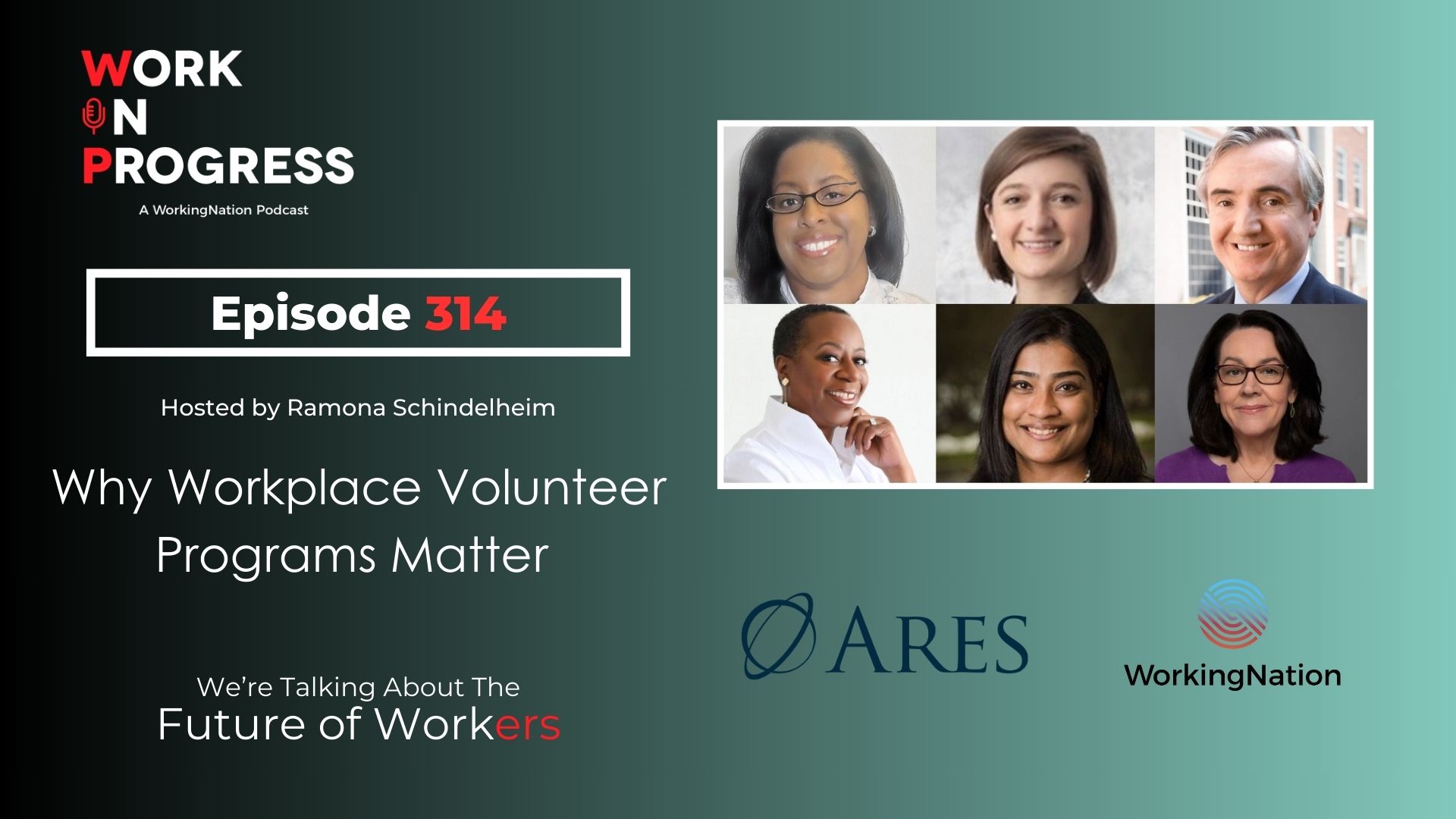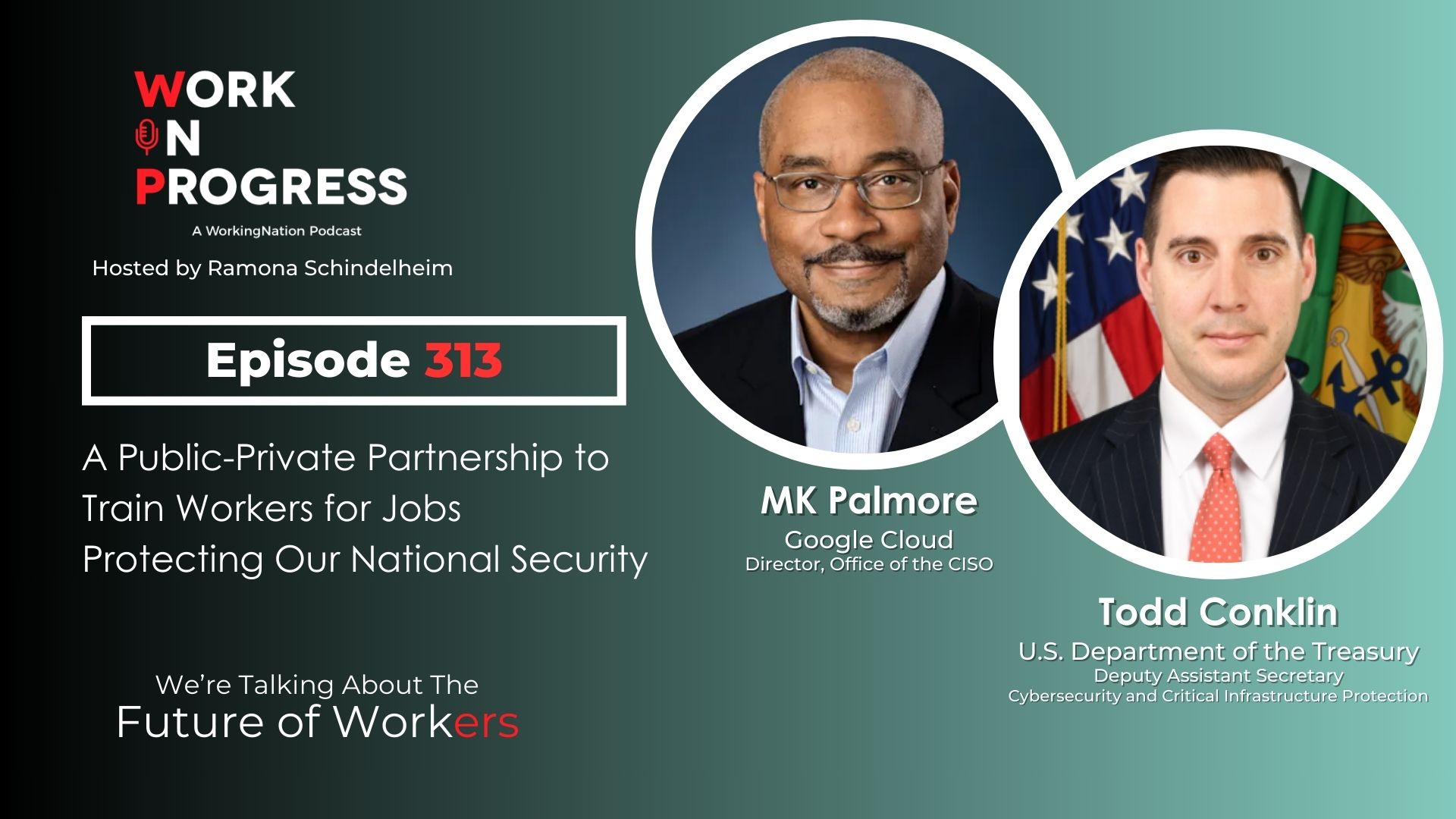Cybersecurity is one of the fastest-growing sectors in information technology and the demand for cybersecurity professionals is outpacing the supply entering the workforce.
What are the training solutions for the thousands of open cybersecurity jobs which go unfilled each year in this burgeoning industry? WorkingNation gathered experts representing the academic, corporate and nonprofit sectors for an upcoming hour-long TV special, Cracking the Code: A WorkingNation Town Hall on Bridging the Cybersecurity Skills Gap, to discuss the best practices for developing this valuable labor force.
WorkingNation presents seven segments taken from the Town Hall broadcast. They feature expert analysis of the problems employers face in securing their tech infrastructure and protecting data from malicious harm. We learn about the difficulties employers they have in hiring and retaining cybersecurity workers, what employers are doing to close the skills gap and the impact of education in reaching diverse talent pools.
Our Town Hall moderator, CNBC and MSNBC contributor Ron Insana, kicked off the discussion at the campus of the Jacobs Technion-Cornell Institute at Cornell Tech with professor Ari Juels. Dr. Juels provides an overview of the current state of cybersecurity and the insight on scaling security training throughout industries from product managers to the c-suite.
Burning Glass Technologies‘ Manager of Client Strategy and Analytics Will Markow offers his company’s research into the roadblocks preventing job seekers from accessing IT careers. According to Burning Glass, employers’ job descriptions are unnecessarily weighed down by certification and experience requirements. Markow revealed how certifications are used as “proxies” for skills and are responsible for shutting out viable talent.
Akamai Technologies CSO Andy Ellis and RenaissanceRe CISO Kelly Isikoff break down the skills which translate from career fields outside of technology into cybersecurity roles. Ellis mentions how there is a spectrum of available career pathways which incorporate non-technical skill sets. Ellis and Isikoff’s anecdotes about workers from “analog” industries (library and repossession services) illustrate how mid-career workers can build on their current skills to become cybersecurity professionals. PSEG Services Corporation CIO Joseph Santamaria explains how PSEG works with local community colleges to develop its cybersecurity workforce.
The lack of skilled cybersecurity workers coupled with a tight labor market is forcing employers to expand their hiring capabilities beyond technology hubs. ClearSky CISO Patrick Heim says the diffusion of technology and tech skills enables cybersecurity managers to tap into a global supply of cybersecurity professionals. Northwell Health CIO John Bosco outlines the healthcare industry’s struggle to attract workers away from more visible competitors in Silicon Valley.
Policymakers have an essential role to play in connecting workforce needs with the educators and organizations which deliver skills training. New York City Economic Development Corporation Senior Project Manager Nick Lalla talks about how the City of New York is investing $30 million in the information technology ecosystem through public-private partnerships with Cyber NYC to bring about a new generation of cybersecurity professionals.
Public-private partnerships are instrumental in discovering untapped talent pools and scaling access to technology training. Per Scholas Executive Vice President Bridgette Gray says her organization works closely with employers to develop training curriculum tailored to employers’ specific workforce needs. This enables Per Scholas to reach into underserved communities and develop new sources of talent for partners like Barclays International. Wayne Kunow, Barclays’ head of cyber and information security governance, explains how this partnership increases diversity in hiring by offering job training opportunities to overlooked individuals.
Annemarie Johnson’s personal story about how she made the decision to enter cybersecurity shows how career changers can utilize education to build or enhance their skills. Johnson, who works as a Field Technical Representative for Unisys, recognized how her work was shifting toward digitization and went back to school at the American Women’s College at Bay Path University to obtain her cybersecurity education. The school’s Chief Administrative Officer Amanda Gould says that its accelerated curriculum targets the gender gap in IT careers by training professionals like Johnson.
Watch the entire livestream of the NYC Town Hall event below for more insight from our panelists as well as a tribute to Akamai Technologies co-founder Danny Lewin. Follow WorkingNation across our social platforms (Facebook, Twitter, LinkedIn) for more information about the upcoming television broadcast of the Town Hall.











